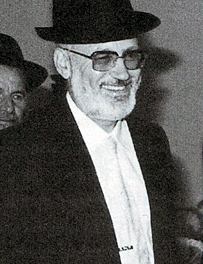Anmerkung:
Das jüdisch-religiöse Magazin HaMaayan in Beer Scheva (Israel) publizierte in der April-Ausgabe 2010, S. 73-75, die verdienstvolle Hebrew-Übersetzung des inzwischen bekannt gewordenen Textes von Josef Weiss, dem letzten Judenältesten von Bergen-Belsen: „Seder 1945“. Der deutsche Text wurde erstmals 1983 in meinem Buch JUDAICA und nun noch einmal in meinen NEWS vom 30. März 2010 online publiziert.
Der in Israel lebende Schriftsteller Shmuel Emanuel hatte sich der Mühe unterzogen, den Text in Hebrew zu übersetzen. Gleichzeitig ergänzte er seine Einleitung mit der Erinnerung an seinen Bruder Jona Emanuel, der dasselbe Seder-Fest im dantesken Bergen-Belsen 1945 erlebte. Shmuel Emanuel war ebenfalls mit „Jupp“ Weiss in diesem Hungerlager und lobt in dem folgenden Beitrag die philanthropische Handlung des letzten Judenältesten im Star Camp.
Das Inhaltsverzeichnis des o.a. Magazins ist in englischer Sprache, die Beiträge der renommierten Autoren in Hebrew. Der Artikel von Shmuel Emanuel wird den Lesern folgendermaßen vorgestellt:
Memories of the 1945 Seder night at Bergen Belzen/Yoseph Weiss ZL;
R. Yona Emanuel ZTL .
Memories of the 1945: Seder night at Bergen Belzen
Shmuel Emanuel, a veteran member of Kibutz Sha’alvim, who lived through the terrible 1945 Seder night at Bergen Belzen concentration camp, describes the impressive figure of the late Yoseph (Yoop) Weiss, the deputy camp commander, who helped his fellow Jews as best he could. There are here some terrible and exciting memories of that night by Yoseph Weiss ZL and by the older brother of Shmuel Emanuel, the Editor-in-Chief of HaMa’yan, R. Yona Emanuel ZTL.
Zuerst wird Rabbi Yona Emanuel zitiert. Die englische Übersetzung des diesbezüglichen Teils aus dem Hebrew-Text verdanke ich Mrs. Orit Friesem Kessel (USA), der die Erinnerungen von Yona folgendermaßen wiedergibt:
![]()
![]() (English Version)
(English Version)
Yona Emanuel
Today I want to tell about what happened to me (...). I could not tell the story of that day until now. I didn't tell this to my wife nor to my children. I never told it to anybody. For the first time, on the birth of my grandson, Aaron Hananel, I feel I can tell what happened on that day.
On the night of the first Seder (....) I left early in the morning for my work at the camp Bergen-Belsen, as I did every day for the past two years. I came back at night - the evening of the First Seder - tired and broken, just as I came back tired and broken for the past two years. I was 19. My father was not alive. My oldest brother, Elchanan, was not alive. My younger brother, Shalom, was not alive. My little sister, Batya, was not alive.
Camp Bergen Belsen was not a concentration camp. It was a working camp and the Jews died from hard work, from the terrible cold, from hunger and disease. Hundreds of Jews died every day at Bergen Belsen during this period.
I went to my mother's shelter. She was very sick. I sat next to her and I was starting to read the Hagadah. We didn't have wine. We didn't have matzah. We didn't even have bread. One thing we had, and a lot, a lot, a lot of was... maror (bitter herbs, which are part of the traditional plate at Passover-Pesach Seder table) in our hearts. Quietly I spoke the Hagadah story while my mother - I doubt if she heard what I read - that when I got to the blessing of the Jews' escape from slavery in Egypt to freedom - and I said the word "[a quote from the Hagadah]" thanking God and the God of our forefathers that we arrived in freedom in time for this celebration of Rogalim [opportunity to go to Jerusalem].
I felt for the first time that I do not believe in what they said. No one of us will get to celebrate the holiday and the Rogalim (opportunity to go to Jerusalem). If any of us will survive to see Jerusalem, any of us will be happy and I was crying and in the middle of the blessing I stopped reading the Hagadah.
If I could imagine myself at the First Seder(...); it is like a little of what happened here today (...) If I could imagine that I would be lucky to come to Eretz Yisroel with my sister and two brothers, I would be lucky to live in a Jewish country and have a family, that I will have seven children, that I will be able, after 40 years, to be the Godfather at my grandson's Bris in Jerusalem. If I can imagine to myself only a little of all this, maybe I would have been able to finish the reading of the Hagadah (...).
Der o.a. Hebrew-Text “Seder 1945” von Shmuel („Sam“) Emanuel lautet im Original:
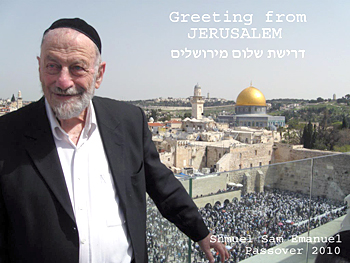

![]() (Hebrew Version)
(Hebrew Version)
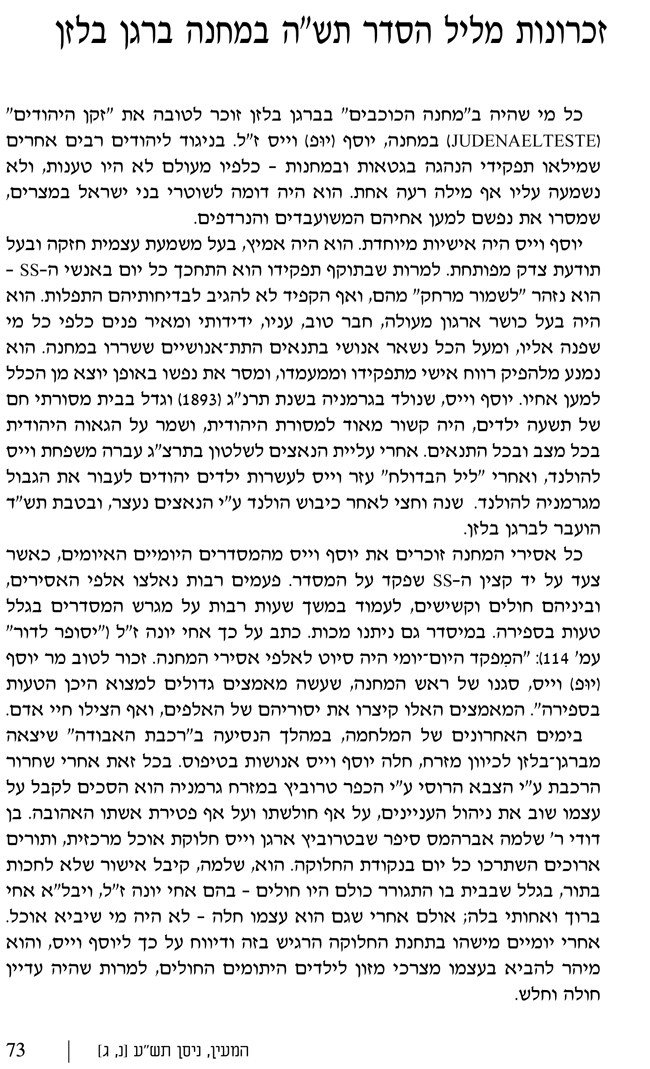
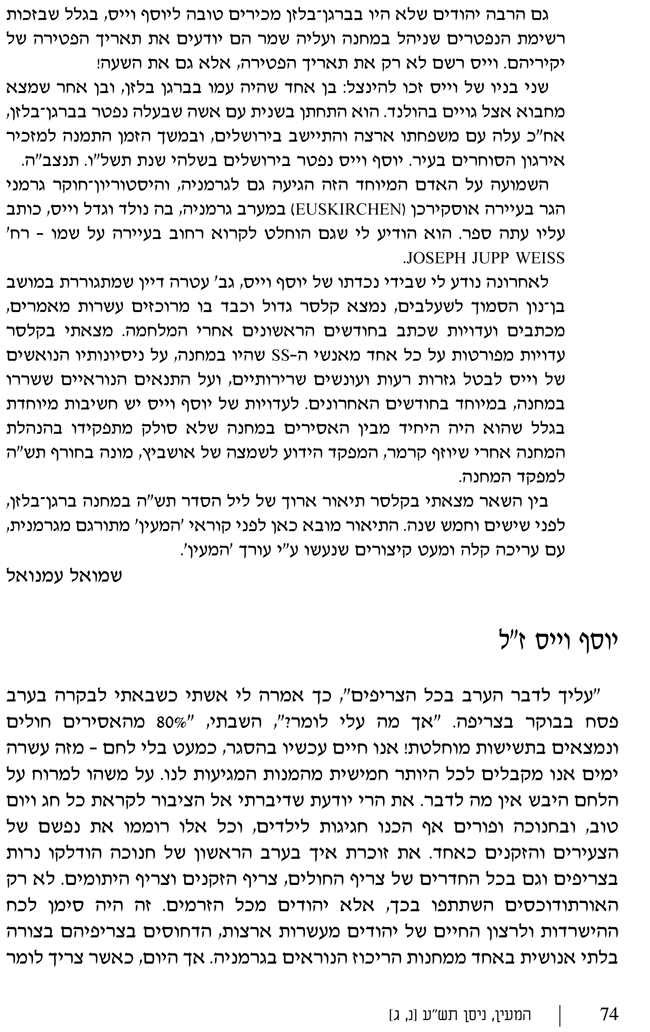
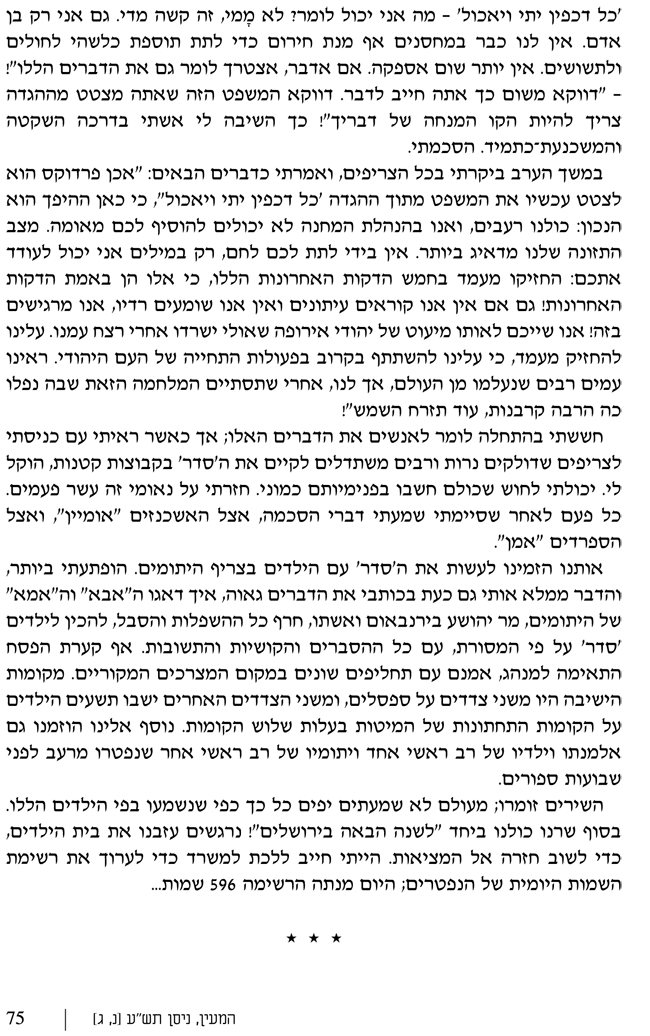
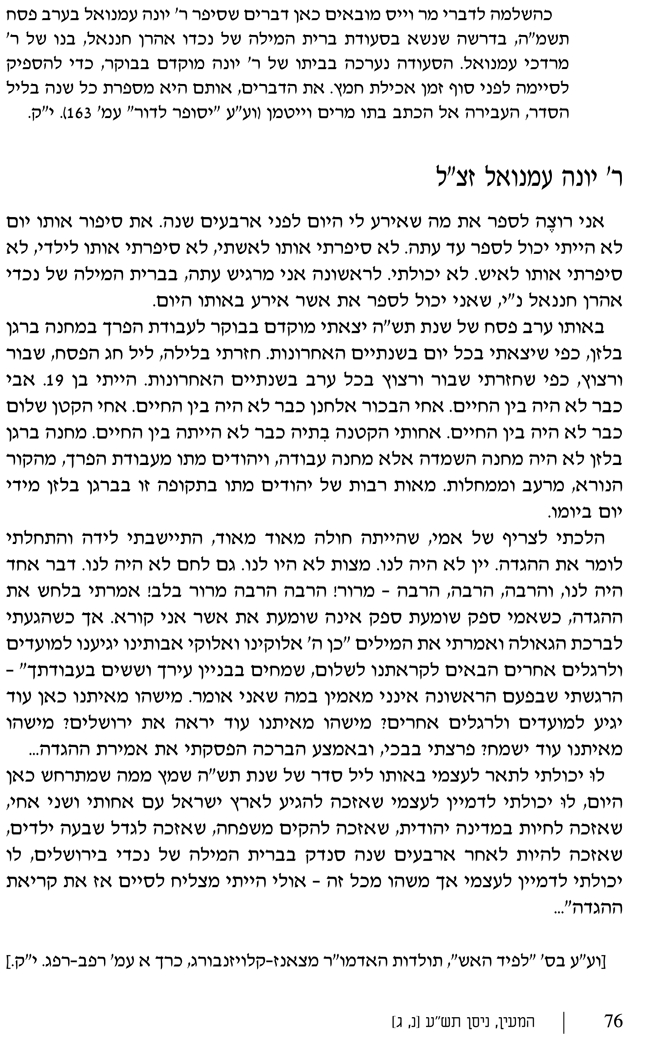
LINKS
Jupp Weiss aus Flamersheim, der Judenälteste von Bergen-Belsen |
|
|
|
|
|
|
